This is my folk theory* of fiction (the way I seem to think about fiction in my non-academic life): Fiction–some fiction, and yes, most of it literary–can affect people, but not the way most people assume it can. I do not believe fiction can corrupt readers. I am not even sure it can ever have a direct, lasting effect on all readers (e.g., I do not believe that reading literary fiction, by itself, can increase empathy in readers).
What I believe fiction does is encourage people to think about themselves, and by extension the world, differently: more specifically, certain books can help the right people work through questions in their own minds. When I recommend a book to someone, it is frequently because I believe that that specific book will lead that specific person to think about things in a new light.
*I’m a bit nervous about using “folk theory” in this way… but it sounds better than “Jessica’s Personal Theory of Fiction”
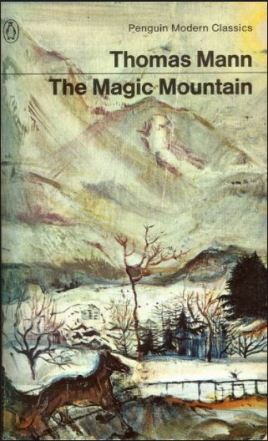
Strangely, despite the fact that I study fiction empirically, I have never really integrated the way I I have thought about fiction my entire life into my (more recent) academic thinking… and I just realized this a few days ago.
Over the last several weeks, I’ve spent a lot of time preparing my “job talk” … the ~45 minute talk I will be expected to give if I am invited for interviews by prospective employers. The first version, which I gave to the participants of our regular social psych seminar last week, was too light on theory and too heavy on stuff (that is, studies, data, etc.). I’ve been simplifying and spelling out theory in simple diagrams.
How does fiction work?
The question is, broadly, how does fiction work? How do the books we read and the films we watch affect us (if they do)? Can certain types of fiction make us more or less moral? (“People” certainly think fiction can be a threat… books have been banned for centuries, and early lists of prohibited books also included books that promised to make people more moral). Can exposure to ideas in books and film change our real life beliefs and attitudes? (There is some evidence that it can, and not only collected by me.)
[Here is an excellent piece by Keith Oatley on how fiction may work: Why Fiction may be Twice as True as Fact]
In my role as a researcher…
In my evolving job talk, I explain that even in experimental designs (when study participants are randomly assigned to read different types of narratives, such as literary fiction and nonfiction), the effects of fiction are constrained by the readers’ (or viewers’) past experiences/individual differences/intersectionality, because what they bring to the experience with fiction changes how they read (or view) it.
In my current research on fiction, I focus on the mechanism–how the way people read affects the outcome. For example, if they refuse to engage with the narrative, it’s unrealistic to expect that it can affect them in any way (popular ‘effects’ include persuasion/attitude change, empathy, and theory of mind).
Of course, I believe that I am correct–that my model of {people}*fiction interactions can explain what researchers find (and fail to find) when they test the effects of fiction. I am testing my model by exploring the association between fiction exposure and empathy, morality, and moral and modal judgment. I also randomly assign research participants to read or view different types of fiction (or nonfiction) and then test the effects of the manipulation on various outcome measures… in my role as an academic researcher.
In my role as a reader
…who loves to recommend books, I also tell people to read things… all the time. (I also recommend films and TV shows, but not as frequently.) And I realized the other day that I do so not because I believe that a book will make them “more moral” or even better at people skills (i.e., social cognition). I do not tell people to read specific books because I believe the book(s) will change the way they see the world (though that may be a secondary effect); I do it because I believe the book(s) might change the way they see themselves.
I began to think about this blog post last Thursday. Every Thursday I have lunch with other people who, like me, are involved with the Institute for the Study of Human Flourishing. These lunches are great, because we talk about philosophy (and psychology and religion and whatever, but mainly philosophy).
I love philosophy
I hadn’t realized how much I missed philosophy. Since coming to Norman, I simply have not had much opportunity to talk philosophy; in Arcata, I did, both because I took (or audited) a lot of philosophy classes at HSU, and I made friends with whom one could do philosophy. In Spain, I had philosophical arguments all the time. Often with students or ex-students (I did have the most brilliant students) but also with friends and of course the resident philosophy teacher. These ex-students and friends are well-aware of my tendency to recommend books. Some of them even read the books 😉
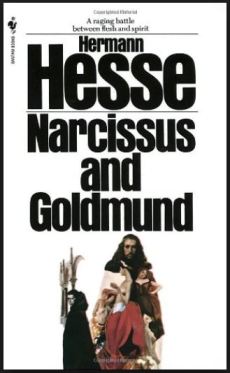
My book recommendations reflect my folk theory of fiction…
This Thursday I recommended two books: Narcissus and Goldmund and War and Peace. The War and Peace recommendation was not really serious… I do not believe any of the people were likely to read it (but we were talking about individuals’ places in history). Besides, I had only recently recommended War and Peace to a GU interviewee, and he actually emailed me after the interview to say that he was definitely reading it (I have thus met my Tolstoy recruitment quota for the year).
The Narcissus and Goldmund recommendation was a serious one (although in fact Pierre’s story in War and Peace would be even more to the point). The point of this particular recommendation (and many other “serious” book recommendations) was that I believe that certain books can help readers to think through questions that are evidently worrying them.
When I suggest this kind of book to someone, it’s because I believe not only that he (or she) is capable of reading and appreciating the book, but also that the book will present a problem or issue in a way that I believe will be useful to that person.
It’s not easy…
Of course, sometimes I am wrong. It’s difficult to match books to people, even when pure fun is the motive. I also recommended Terry Pratchett on Thursday, as an example of an author who integrates string theory in fiction successfully; I cannot imagine not enjoying the Disc World, but of course… some people don’t. Not to say that Pratchett cannot also change the way readers think; his descriptions of Sam Vimes’s take on people and his changing attitudes towards trolls and goblins are masterful. But I do not recommend Pratchett with the thought that reading his novels may help people sort out their own thoughts on life (though it may well do). I recommend Pratchett because his books are good, robust fun, with overtones of irony and hints of real-world issues.
Genre vs literary fiction
Plenty of people have written about the distinction between literary and genre fiction; some of these people have been psychologists who wanted to say “hey look, we’ve shown that literary fiction really is better for you!” I love all good fiction, but I am especially fond of science fiction, fantasy, and literary fiction. Most of my all-time favorite books (and all of the books I recommend believing that they will change the way a reader thinks) are literary fiction. However, the lines are by no means definite.
Some books are merely brain-candy (romance; much of current YA offerings; Game of Thrones). I like candy, but it really doesn’t do a lot for me in the long run. I still believe that brain-candy books have the potential to change the way people think about things, but the effects are probably weaker. On the other hand, a lot of people read brain-candy, so I’m interested in finding out what it does to them; hence my research.
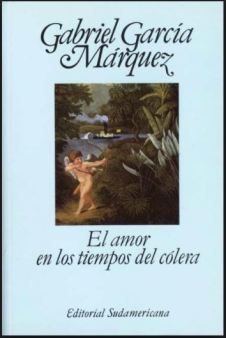
Most of my serious recommendations are literary fiction
Not as many people read Tolstoy or Thomas Mann or George Eliot or Gabriel García Márquez, and yet, when I make a serious recommendation, when I do it believing that someone should read a certain novel, it’s always this kind of book. And as I say, “You really need to read Buddenbrooks, or Jude the Obscure” (eg), I mean “You should read this book because it’s going to give you insight on this thing we’ve been talking about” and/or “You need to read this book because it’s going to help you understand yourself” … it’s going to change the way you think.
Books can change people
Whatever I may say to temper my claims in an academic paper, I’ve believed for a long time that books can and do change people. I do not believe there is anything especially social in these changes (most theories of fiction hold that any benefits will be primarily in social cognition, or understanding other people ); reading may help us understand other people, but, on my view, it primarily helps us understand ourselves.
Of course, my beliefs may reflect my own experiences with fiction; I bring my self and my past to everything I read, just like everyone else. In any case, it will be very difficult to assess these kinds of effects: measuring introspection has always been a puzzle. I will try to think of a way… but in the end, we may have to settle with what researchers already use as outcome measures: attitudes, beliefs, social cognition (and of course, learning can be measured!)
In the meantime, an exercise in book recommendation
This is my blog so I can offer a list of the books “people should read,” and because it is not a personal recommendation, it doesn’t matter if I fail as a literary matchmaker. If anyone has suggestions not on the list, please do comment. I’d also welcome people’s own experiences with fiction (or nonfiction): how has reading changed you?
Books/authors that may change the way you think (that are not already mentioned above… when I mention a specific book, that means my favorite of an author I like in general), and/or books that are just plain good fun:
(by “genre” but there is a lot of overlap)
Literary fiction:
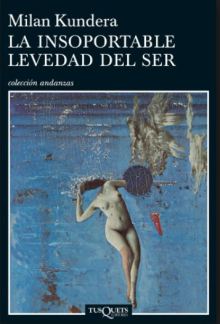
Blood Meridian (Cormac McCarthy)- not for the squeamish.
Cloud Atlas, Bone Clocks (David Mitchell).
The Rainbow, Women in Love (DH Lawrence)
Hard-boiled Wonderland and the End of the World, The Wind-Up Bird Chronicle (Haruki Murakami)
The Time of our Singing (Richard Powers)
Transit of Venus (Shirley Hazzard)
The Recognitions (William Gaddis)
The Mill on the Floss (George Eliot)
North and South (Elizabeth Gaskel)
David Copperfield (Dickens)
Point Counter Point (Aldous Huxley)
The Counterlife (Philip Roth)
Youth (Joseph Conrad)
Thomas Hardy, Milan Kundera, Margaret Atwood, Michel Houellebecq, Paulo Coelho, Jane Austen, John Irving…
all the ones I’ve already mentioned.
For philosophers:
The Last Puritan (Santayana)
For Spanish: Yes you need to read el Quijote.
Science fiction/fantasy/speculative:
Babel-17 (Samuel R. Delany)
Stranger in a Strange Land (Robert Heinlein)
Cryptonomicon, Anathem (Neal Stephenson)
Dune (Frank Herbert)
The Left Hand of Darkness (Ursula Le Guin)
Anne McCaffrey, JRR Tolkien, Neil Gaiman, Octavia Butler, Terry Pratchett, CS Lewis
*I have always loved Lord of the Rings, reread many times since the first time my father read the books to me when I was a child (along with all other Tolkien), but I don’t generally tell people to read the books or even watch the films. I don’t know why. I do tell people to watch Star Wars (all of them).
I am currently reading Death’s End by Cixin Liu.
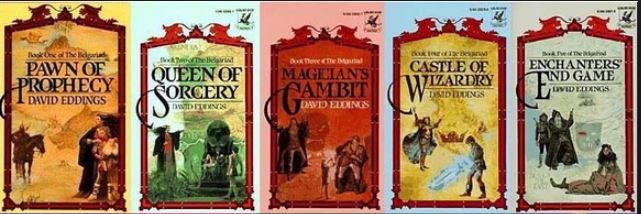
Intended for younger readers but good for all:
Howl’s Moving Castle (Diana Wynne Jones; actually Hayao Miyazaki’s film is just as good as the book. In fact, if I were recommending films, I’d recommend everything made by Hayao Miyazaki.)
Madeleine L’Engle, Lloyd Alexander, LA Meyer, Harry Potter of course, George McDonald, CS Lewis’ Chronicles of Narnia (yes I know there is religious symbolism and the thing about Susan; the books are still worth reading to your children)…
Walter Farley (for the horses), Judy Blume
Authors that write in genres I don’t habitually read but are great:
Stephen King (even though he’s partially to blame for Trump and conspiracy theorists)
Georgette Heyer (I know more about the Battle of Waterloo from her Infamous Army than I do from any history book and her dialogue is excellent)
Agatha Christie (you just aren’t a person if you’ve never read Agatha Christie)
Dick Francis (okay so maybe it’s mainly for the horses, but he’s a good rider writer)
Nonfiction:
The Metaphysical Club (Louis Menand)
Gödel, Escher, Bach (Douglas Hofstadter)
The Gnostic Gospels (Elaine Pagels)
Carl Sagan, Dave Eggers, Dava Sobel (I’ve just popped her latest into my cart),
anything about writing fiction, especially John Gardner and Stephen King
I will not list all the many philosophers I believe everyone should read.
All the books I’ve forgotten because I am not responding to a specific instance of someone crying out for a book recommendation (even if s/he didn’t know it):
Anyone have a suggestion for me?
Places to buy books 🙂
Abe Books
Alibris
Amazon.com
Barnes and Noble
European site links:



